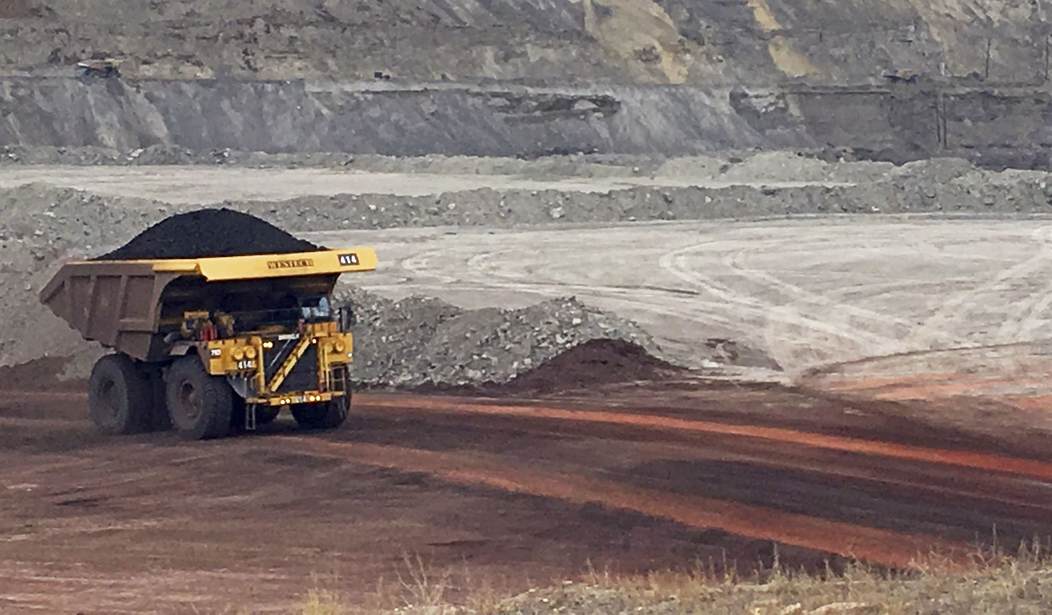Time’s up for bogus environmental do-gooders as the U.S. government rolls back anti-coal regulations left over from the Obama era. President Donald Trump has eased restrictions that have stifled innovation in the country’s power sector.
The Environmental Protection Agency (EPA) recently revised standardson coal ash disposal in a move decried by inflexible tree huggers but welcomed by the utility companies for whom the legislation has proved unnecessarily burdensome – to the tune of a $30 million a year—and by states, who have been unfairly constrained by the strict federal standards.
The initiative comes just a few weeks into Andrew Wheeler’s tenure at the helm of the EPA, and should ease conservatives’ concernsthat Wheeler wouldn’t share former EPA Administrator Scott Pruitt’s zeal for overhauling the agency and scrapping useless regulations which have been handicapping American companies. Wheeler choice to relax the restrictions on coal ash disposal as one of his first policy decisions confirms that his appointment was a savvy move by an administration committed to saving mining jobs and reviving interest in one of America’s most abundant natural resources.
The EPA’s policy shift is the latest step in the new administration’s war on Obama’s war on coal, emphasizing President Trump’s determination to liberate the American coal industry from the shackles Obama imposed on it. The excessive regulations Obama held back crucial technological developments, such as high-efficiency, low-emissions (HELE) plants designed to make fossil fuels more climate friendly.
Recommended
This administration’s new, more pragmatic approach to energy policy and regulation will allow America to spearhead a fresh wave of innovation, developing ‘clean coal’ technologies to be used around the world. There’s a significant market for this technology, as demand for coal-powered energy is on the rise in developing nations, especially the emerging economies of Southeast Asia.
Keeping in mind the 25% of people in developing countries who still live without electricity, the Trump administration has been making a global push for the wider implementation of HELE tech through a ‘Fossil Alliance’.Energy Secretary Rick Perry outlineda proposed alliance would bring together developed nations which already possess advanced HELE and carbon capture and storage (CCS) technology with emerging market economies hoping to benefit from that expertise to industrialize more cleanly— including some of the biggest coal consumers in the world, such as India and Vietnam.
Unsurprisingly, it’s been dismissed out of hand by activists who ignore the irrefutable evidencethat fossil fuels will play a part in the global energy mix for decades. As Secretary Perry pointed out, current forecasts indicatethat as late as 2040, fossil fuels will produce 77% of the world’s energy.
Unfortunately, due to unnecessary funding and regulatory restrictions, progress has been impeded on developing HELE, which could hold the key to cheaper, more energy-efficient power. Five years ago, the World Bank abruptly decidedto stop funding coal-fired power plants except in cases where ‘no feasible alternative’ existed. The international financial institution only granting funding for one plant in Kosovo, a project they are now tryingto terminate. The World Bank made the move to change its funding guidelines despiteBrazil and other emerging economies’ arguments that the developing world should be allowed to use whatever resources they deem necessary to catch up with advanced economies.
These countries’ industrialization is drivingan increase in global energy demand which, in the short term at least, can only be met by a multifaceted energy mix. Coal will continueto be the fuel of choice for the foreseeable future for China, India and regions like Southeast Asia, where energy demand is expected to spikeby almost 60% between now and 2040 as its economy triples in size.
As these emerging markets lead an uptick in global fossil fuel consumption, HELE and other latest-generation technologies could offer a silver bullet: affordable power with low carbon impact.
The Trump administration has already shown itself willing to provide that support. Back in February, Congress passedup to 12 years of tax credits for carbon capture projects. As one activist for clean energy described it, these tax credits could “change the equation” by creating a viable carbon capture industry which will be able to sustain itself without government support in a few years.
The latest policy development from the EPA is yet another encouraging sign that, while America takes its responsibility to protect the environment seriously, it is determined to do so without putting American businesses or developing countries at a disadvantage.

























Join the conversation as a VIP Member